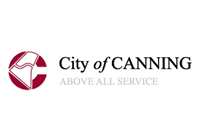Qualification levels help to evaluate the economic opportunities and socio-economic status of local workers in a particular industry.
The level of qualifications in a workforce relate to a number of factors including:
- The age of the workforce;
- The skill and qualification level required to enter an industry;
- The professional or working ambitions of people (to seek education as youth or retraining as adults);
- The opportunities afforded to people to continue studying beyond compulsory schooling.
Educational Qualification statistics should be looked at in conjunction with Field of qualification and Occupations data for a full education analysis for the City of Canning.
Data source
Australian Bureau of Statistics (ABS) – Census 2016 & 2021 – by place of work
Current industry:
Current benchmark:
Sex:
| Local workers qualifications | |||||||||
|---|---|---|---|---|---|---|---|---|---|
| City of Canning - All industries | 2021 | 2016 | Change | ||||||
| Qualification level | Number | % | Western Australia | Number | % | Western Australia | 2016 - 2021 | ||
| Bachelor or Higher degree | 15,297 | 25.0 | 31.1 | 12,025 | 21.9 | 27.4 | +3,272 | ||
| Advanced Diploma or Diploma | 6,550 | 10.7 | 10.9 | 5,678 | 10.3 | 10.8 | +872 | ||
| Certificate I and II Level | 1,171 | 1.9 | 1.8 | 719 | 1.3 | 1.4 | +452 | ||
| Certificate III & IV Level | 13,793 | 22.6 | 21.8 | 12,394 | 22.6 | 21.9 | +1,399 | ||
| Certificate Level, nfd | 1,014 | 1.7 | 1.7 | 1,053 | 1.9 | 2.1 | -39 | ||
| No qualification | 21,805 | 35.7 | 30.1 | 21,526 | 39.2 | 33.6 | +279 | ||
| Inadequately described or not stated | 1,471 | 2.4 | 2.5 | 1,495 | 2.7 | 2.8 | -24 | ||
| Total Persons | 61,101 | 100.0 | 100.0 | 54,890 | 100.0 | 100.0 | +6,211 | ||
Source: Australian Bureau of Statistics, Census of Population and Housing 2016 and 2021. Compiled and presented by .id (informed decisions) Please refer to specific data notes for more information | |||||||||


Dominant groups
Analysis of the qualifications of the in the City of Canning in 2021 compared to Western Australia shows that there was a lower proportion holding formal qualifications (Bachelor or higher degree; Advanced Diploma or Diploma; or Vocational qualifications), and a higher proportion with no formal qualifications.
Overall, 61.9% of the workers who held educational qualifications, and 35.7% had no qualifications, compared with 67.4% and 30.1% respectively for Western Australia.
The major differences between the qualifications held by the workforce of the City of Canning and Western Australia were:
- A smaller percentage of local workers with Bachelor or Higher degree (25.0% compared to 31.1%)
- A larger percentage of local workers with No qualification (35.7% compared to 30.1%)
- A larger percentage of local workers with Certificate III & IV Level (22.6% compared to 21.8%)
- A smaller percentage of local workers with Advanced Diploma or Diploma (10.7% compared to 10.9%)
Emerging groups
The largest changes in the qualifications held by the workforce in the City of Canning between 2016 and 2021 were:
- Bachelor or Higher degree (+3,272 local workers)
- Certificate III & IV Level (+1,399 local workers)
- Advanced Diploma or Diploma (+872 local workers)
- Certificate I and II Level (+452 local workers)
